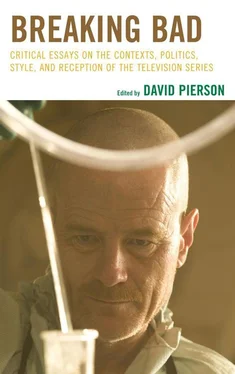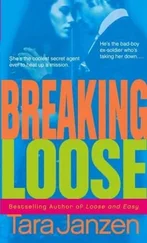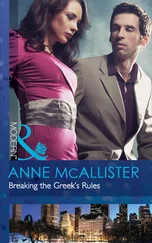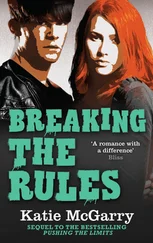Skyler and Walter are arguing their divergent views of ‘marriage’ and ‘family,’ given that Skyler’s sexual act addresses expectations between the couple—from Walter’s perspective regarding marital sexual fidelity. Her action is not intended simply to grab his attention but is intimately connected to the contestation they are engaged in over the emotional values and ethical meanings of marriage and family. Walter pauses in his headlong rush to justify his actions to Skyler only once he believes she has betrayed him, in terms of the rules and expectations of their marriage.
Yet, from Skyler’s perspective, Walter as spousal partner has betrayed her by failing to listen to her “side” of the story, in refusing to consult her over drastic changes in the way the family operates, by taking unilateral actions that affect the entire family and, perhaps most of all, in failing to preserve the family from physical danger or emotional harm. Skyler, then, attempts to convey the marital betrayal she feels through an act she recognizes Walter will perceive as the breaking of a marital trust. The emotions negotiated and exchanged between Walter and Skyler are effective precisely to the degree that they link closely to the meanings of marriage and family because, in light of recent changes to the ways they have previously functioned as spousal partners and as a familial unit, the meanings and feelings each holds now differ sharply. At stake are their expectations, rights, and responsibilities as spouses, contested over their divergent meanings of marriage and family, and enacted through their respective emotional feelings and expressions, that is to say, performed via their affective positions. Breaking Bad , then, recognizes and frames marriage as an emotional institution as well as an economic and legal one.
Skyler’s sexual act has proven effective—and dramatic from the audience’s perspective—because she has rightly gauged Walter’s emotional response. He receives her sexual ‘infidelity’ as an act that destroys the sanctity of their marriage, even as he fails completely to see that his own actions have undermined the trust between the marital partners, from Skyler’s point of view. Although Walter proves incapable of grasping the points that Skyler strives to express, arguably the audience does.
In order for her sexual act to prove effective, Skyler must recognize and operate upon the basis of Walter’s system of values that, in turn, determines his emotional susceptibilities. Her familiarity with and correct assessment of his emotional makeup enables her to act on that which resonates for Walter in feeling terms. Indeed, the entire storyline of their relationship is dependent upon their mutual capacity to recognize and act upon the other’s emotions, although usually in the negative sense of making the other ‘feel bad.’ The most significant point here, however, is that theirs are not ‘private’ or merely personal sets of feeling but, rather, a high stakes struggle, involving repeated acts of emotional contestation, to determine who holds power in the family and over the family.
The narrative line of Walter’s and Skyler’s relationship follows a complex and exponentially expanding range of characters’ feelings, of emotional expressions and actions in response to the other’s feelings, of attempts to make his or her counterpart feel certain ways, and of blaming the other for the way one feels. Such emotional action is not limited to Walter’s and Skyler’s relationship but permeates the series. Arguably, it is not solely Walter’s physical actions (although certainly these too) that render the series such compelling drama. Equally, Breaking Bad’s heightened sense of excitement and suspense are created by the rationalizations and motivations for Walter’s actions, the basis upon which he decides it is necessary, or even his right, to commit the actions he undertakes.
It may well be that relations of power conducted through emotional strategy are more visible in instances of characters ‘feeling bad’ and, reciprocally, working to make other characters feel bad. However, emotions that we may perceive as more positive—cases of ‘feeling good—also involve relations of power. For example, in Foucault’s list of social circumstances in which relations of power are present, he includes “amorous” as well as “institutional” and “economic” relationships. To love another or to be loved involves ongoing emotional transactions, working to ‘make’ another feel certain ways.
Such efforts expended to ‘make’ others feel in specific ways are intended to affect others. As I argued at the beginning of this chapter, working to ‘affect’ others may be a more useful way of understanding the productivity of power relations in contrast to Foucault’s vocabulary of attempting to “control” the conduct of others, precisely because so many ongoing, mundane acts of sociality are not accomplished through coercion but through emotionality. For social relations to exist, emotions must be transmitted and received, whether they are accepted, rejected, or amended. Such emotional negotiation and exchange produces the constant play of and modification in power relations.
In this reading of Breaking Bad , I have rather artificially distinguished between emotional action and physical action, although they are interconnected narrative processes, normally operating in tandem. I have made this distinction in order to examine the centrality of the representation of emotions to narrativity as a whole. Substantial value exists in bringing a more developed understanding of the functions of emotions into the critical analysis of narrative, from which they largely have been absent. Considering narratives within the framework of both emotional and physical action opens them up to new interpretations. The more typical approach of psychological readings based on characters’ motivations and feelings tend to locate emotions as, and limit them to, internalized experience.
In contrast, thinking in terms of emotional action works to externalize characters’ emotional feelings, expressions, and behaviors, rendering them eminently social. Through the intimate interaction of emotions, meaning, and power, ongoing social transactions of negotiation and exchange occur at all levels of the social spectrum, from the most routine to the grandest. Finally, I began with Foucault’s anecdote about age and intimidation not because of something he explicitly states but, rather, due to that which he leaves out: the vital role of emotions in relations of power, that is, in all human relations.
D’Acci, Julie. Defining Women: Television and the Case of Cagney and Lacey. Chapel Hill: University of North Carolina, 1994.
Foucault, Michel. “The Ethics of the Concern for Self as a Practice of Freedom.” In Ethics: Subjectivity and Truth , Volume One , edited by Paul Rabinow, translated by Robert Hurley. 281-301. New York: New Press, 1987.
Pribram, E. Deidre. Emotions, Genre, Justice in Film and Television: Detecting Feeling. New York: Routledge, 2011.
Breaking Bad : Main Cast, Production History, and Episode Guide
Walter White — Bryan Cranston
Skyler White — Anna Gunn
Jesse Pinkman — Aaron Paul
Walter White, Jr. — R.J. Mitte
Hank Schrader — Dean Norris
Marie Schrader — Betsy Brandt
Saul Goodman — Bob Odenkirk
Mike Ehrmantraut — Jonathan Banks
Gustavo Fring — Giancarlo Esposito
Steven Gomez — Steven Michael Quezada
Original broadcast channel — AMC Network
Читать дальше












